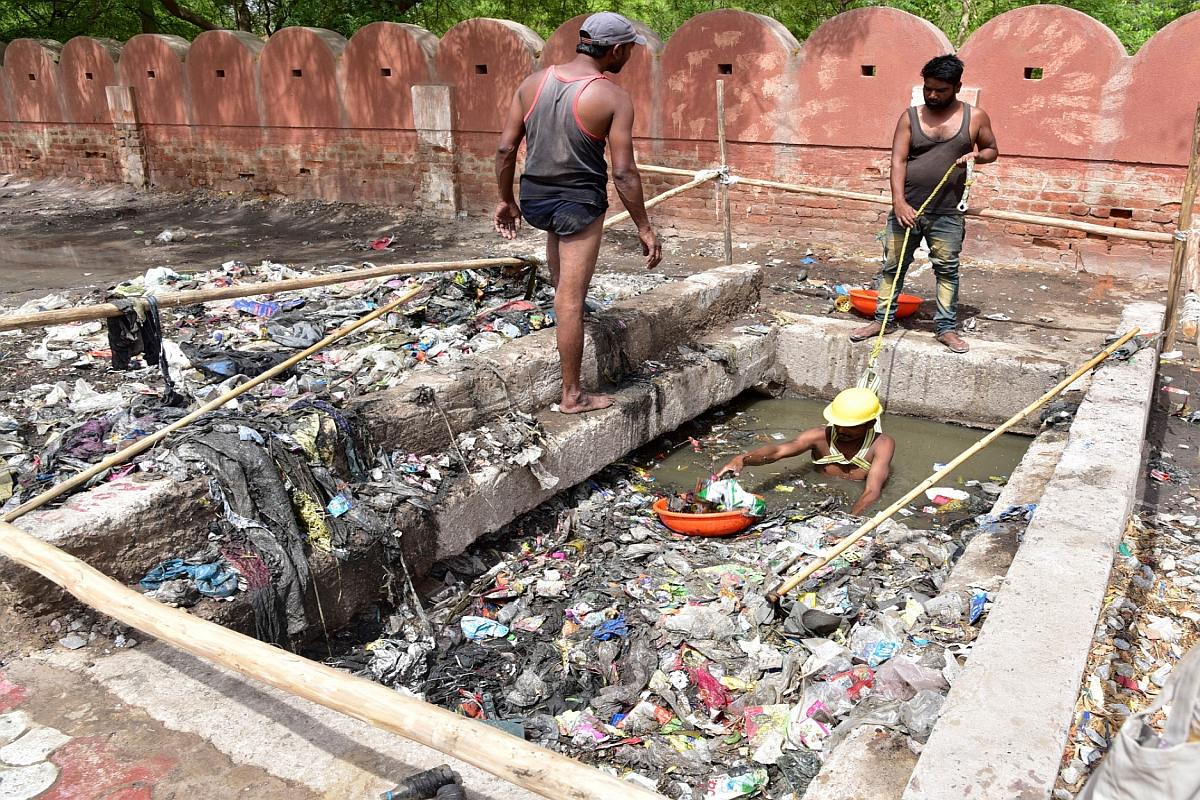Supreme Court rejects 100 per cent cross verification of EVM votes with VVPAT slips
The top court also rejected the prayers of petitioners to return to ballot paper voting system, calling it foible and unsound.
A three-judge bench headed by Justice Arun Mishra criticised the governments and said that more than 70 years have passed since Independence, caste discrimination still persists in the country.

(File Photo: IANS)
The Supreme Court while observing that caste discrimination still exists in society said that nowhere in the world people are sent to “gas chambers to die”. While making scathing observations on manual scavengers and people involved in sewage cleaning, the top court on Wednesday pulled up the Centre and State governments for not providing protective gears to them.
The court’s remarks came while hearing the Centre’s plea seeking the recall of a 2018 judgment which virtually diluted the stringent provisions of immediate arrest and no anticipatory bail for the accused on a complaint filed under the SC/ST (Prevention of Atrocities) Act.
A three-judge bench headed by Justice Arun Mishra criticised the governments and said that more than 70 years have passed since Independence, caste discrimination still persists in the country.
Advertisement
The bench also said that it is the “most uncivilised and inhuman situation where people involved in manual scavenging are dying every day and no protective gears are provided to them and no action is taken against the authorities.”
The SC questioned Attorney General KK Venugopal, appearing for the Centre. “What have you done for manual scavenging? In no other country, people enter manholes without protective gears. What have you done about it?” the bench asked.
He also pointed out that untouchability is still being practiced in this country as no one shakes hands or wants to be with the people involved in such kind of cleaning activities.
The bench also comprising justices MR Shah and BR Gavai said that such conditions must improve.
SC meanwhile, reserved order on the Centre’s plea seeking recall of its 2018 judgment, the case it was originally hearing.
The Apex Court on Friday had referred the Centre’s plea on the 2018 judgment to a larger Bench. The Centre had stated that the judgment diluting the stringent provision of the SC/ST (Prevention of Atrocities) Act had “seriously affected their (SC/ST) morale and confidence in the ability of the state to protect them”.
On March 20, last year, a two-judge bench had ruled that no one can be arrested under the Scheduled Castes and the Scheduled Tribes (Prevention of Atrocities) Act without prior permission. The court also ruled that anticipatory bail can be granted if “no prima facie case is made out or where on judicial scrutiny the complaint is found to be prima facie mala fide”.
The bench said a public servant can be arrested under the Act only after permission is obtained from the appointing authority. In case the accused is not a public servant, the court said that the approval of the Senior Superintendent of Police (SSP) will be necessary.
The court had said it was providing the safeguard “in view of acknowledged abuse of law of arrest” under the Act. “It’s necessary to express concern that working of the Atrocities Act should not result in perpetuating casteism, which can have an adverse impact on integration of the society and the constitutional values,” it said.
Widespread violence was witnessed following the Supreme Court order on the SC/ST Act.
However, the Parliament on August 9 last year passed a bill to overturn the apex court order concerning certain safeguards against arrest under the Scheduled Caste and Scheduled Tribe law. The Scheduled Castes and the Scheduled Tribes (Prevention of Atrocities) Amendment Bill was passed by the Rajya Sabha. It had got the nod of the Lok Sabha on August 6.
Advertisement